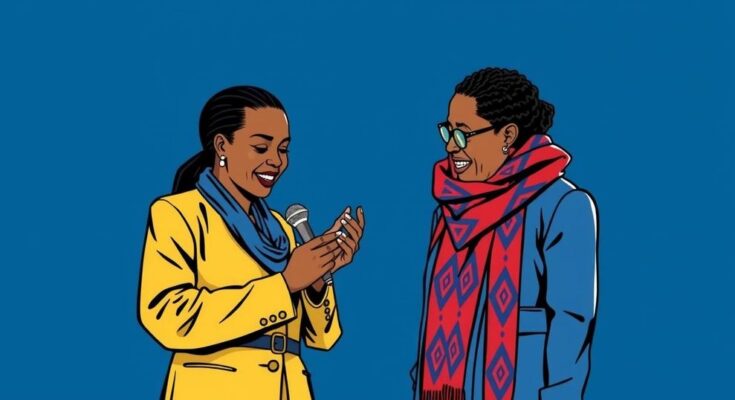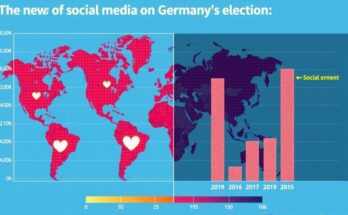In the 2024 presidential election, Democratic support among Somali voters in Minnesota has diminished significantly, primarily due to dissatisfaction with the Biden administration’s handling of the Israel-Gaza conflict and perceived economic issues. Kamala Harris’s victory margins dropped notably in precincts with large East African populations, indicating a shift in voting tendencies among this demographic.
In the recent 2024 presidential election, Democratic support among Somali voters in Minnesota, once considered a reliable bastion for the party, significantly waned. Democratic nominee Kamala Harris’s success in the region was notably slimmer than President Joe Biden’s victory in 2020, particularly in precincts with substantial East African populations. For instance, in Cedar-Riverside, Harris’s support fell by 14 percentage points, with declines also reported in other neighborhoods with Somali constituencies. Several issues contributed to this shift, particularly concerns surrounding the Biden administration’s handling of the ongoing Israel-Gaza conflict. Local activists actively campaigned against Harris, promoting third-party candidates as a form of protest against what they viewed as complicity in violence in the Middle East. Furthermore, many voters expressed dissatisfaction with economic conditions under the current administration, recalling perceived economic stability during Donald Trump’s presidency. Community leaders cited a growing sentiment that the Democratic Party has taken for granted the votes of Somali Americans, who feel that their concerns are not being adequately addressed. “We used to be bloc voters, where we just voted for whoever Democrats bring along,” stated Abdul Yusuf, illustrating the changing political landscape. The Council on American-Islamic Relations reported a noteworthy trend where Green Party candidate Jill Stein captured 53% of the Muslim vote, reflecting a significant departure from traditional Democratic support. Despite these shifts, Stein struggled to gain traction within Minnesota itself, illustrating that discontent does not necessarily translate into a robust alternative political movement. Minnesota Council Member Jamal Osman also noted the frustration within the East African community regarding economic challenges and foreign policy, underscoring that the move away from Democrats is more of a protest against unaddressed grievances than outright support for Republican candidates. Many, he argued, understand that Trump is not a suitable answer to their concerns but opt for a different expression of dissatisfaction. The election results reveal a complex narrative; while some Somali voters sought alternative options, it is evident that many still have qualms about aligning with Trump due to his past rhetoric on immigration and Muslim communities. Yusuf indicates a notable shift towards prioritizing family values and local issues, where candidates’ principles matter more than party allegiance. As the Somali American community’s political dynamics evolve, the Democratic Party may need to recalibrate its approach to engage effectively with this diverse electorate and address the concerns raised during this election cycle.
The Somali American community in Minnesota has historically been a significant voting bloc for the Democratic Party. However, recent geopolitical events, economic concerns, and perceived neglect by party leaders have caused a substantial erosion of this support in the 2024 presidential election. The Israel-Gaza conflict and local economic challenges have influenced voter sentiment, leading to a notable shift away from traditional Democratic candidates. This situation presents a critical juncture for understanding the evolving political affiliations and priorities of Somali Americans within the broader electoral landscape.
The 2024 presidential election marked a pivotal moment for Somali American voters in Minnesota, revealing a significant decline in support for the Democratic Party, largely driven by concerns about foreign policy, economic dissatisfaction, and the feeling of being overlooked by party leaders. As this community re-evaluates its political alliances, it highlights the need for political engagement that respects and addresses the intricate fabric of their cultural and social values. The shift underscores a broader trend in which voters are increasingly prioritizing candidates who resonate with their immediate concerns over party loyalty.
Original Source: www.startribune.com




